
This is a list of playable and boss characters from the Mortal Kombat fighting game franchise and the games in which they appear. Created by Ed Boon and John Tobias, the series depicts conflicts between various realms. Most characters fight on behalf of their realm, with the primary heroes defending Earthrealm against conquering villains from Outworld and the Netherrealm. Early installments feature the characters participating in the eponymous Mortal Kombat tournament to decide their realm's fate. In later installments, Earthrealm is often invaded by force.
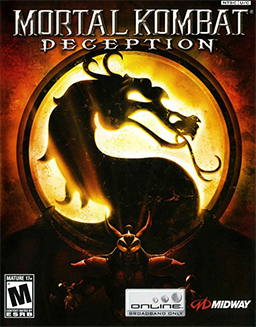
Mortal Kombat: Deception is a 2004 fighting game developed and published by Midway. It is the sixth main installment in the Mortal Kombat franchise and a sequel to 2002's Mortal Kombat: Deadly Alliance. It was released for the PlayStation 2 and Xbox in October 2004, for the GameCube in March 2005 and later ported for the PlayStation Portable under the title Mortal Kombat: Unchained in November 2006. Mortal Kombat: Deception follows the storyline from the fifth installment, Deadly Alliance. Its story centers on the revival of the Dragon King Onaga, who attempts to conquer the realms featured in the series after defeating the sorcerers Quan Chi and Shang Tsung, the main antagonists in the previous game, and the Thunder God Raiden, defender of Earthrealm. The surviving warriors from the previous titles join forces to confront Onaga.
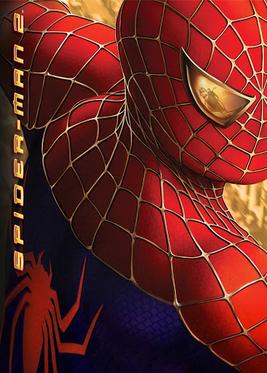
Spider-Man 2 is a 2004 action-adventure game based on the 2004 film of the same name. The game is the sequel to 2002's Spider-Man, itself based on the 2002 film of the same name. It was released on June 29, 2004 for the PlayStation 2, GameCube, Xbox, Microsoft Windows, and Game Boy Advance, followed by N-Gage and Nintendo DS versions later the same year. A PlayStation Portable version was released almost one year later, on March 23, 2005. The Game Boy Advance version, developed by Digital Eclipse, was re-released on a twin pack cartridge and bundled with that system's version of the 2002 Spider-Man game in 2005. A tie-in game, titled Spider-Man 2: Activity Center, was also released in June 2004. Published by Activision, the console versions were developed by Treyarch, while the others had different developers and are drastically different as a result. The Treyarch-developed versions are considered a landmark title in the industry for being the first superhero video game to incorporate a full open world design.

Fight Club is a fighting video game based on the 1999 film of the same name, which was based on the 1996 novel by Chuck Palahniuk. It was developed by Genuine Games and published by Vivendi Universal Games, and was released for the PlayStation 2 and Xbox systems on November 16, 2004 in North America and on December 10, 2004 in PAL regions.

Madden NFL 06 is an American football video game released in 2005. It is the 16th installment of the Madden NFL series by EA Sports, named for color commentator John Madden.It is the first Madden game for the PlayStation Portable and Xbox 360 and was a launch game for the 360. Philadelphia Eagles quarterback Donovan McNabb is on the cover.
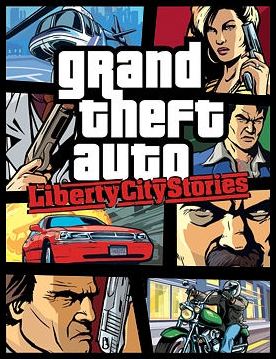
Grand Theft Auto: Liberty City Stories is a 2005 action-adventure game developed in a collaboration between Rockstar Leeds and Rockstar North, and published by Rockstar Games. The ninth installment in the Grand Theft Auto series, it was initially released as a PlayStation Portable exclusive in October 2005. A port for the PlayStation 2 was later released in June 2006. At the time of release, the recommended retail price of the PS2 port was around half the price of the PSP version, because the PS2 version does not feature the custom soundtrack ripping capability of the PSP version. Ports for iOS, Android and Fire OS devices were also released in December 2015, February 2016, and March 2016, respectively.

Tekken 6 is a fighting game developed and published by Bandai Namco Games. It is the sixth main and seventh overall installment in the Tekken franchise. It was released in arcades on November 26, 2007, as the first game running on the PlayStation 3-based System 357 arcade board. A year later, the game received an update, subtitled Bloodline Rebellion. Both versions also saw a limited release in North America. A home version based on the update was released for the PlayStation 3 and Xbox 360 on October 27, 2009. This was the first time a main installment was produced for another console. It was ported for the PlayStation Portable on November 24, 2009. The game was produced by Katsuhiro Harada, who aimed to give the fights a strategic style while remaining faithful to the previous games in the series.

WWE SmackDown! vs. Raw 2006 is a professional wrestling video game and developed by Yuke's that was released on the PlayStation 2 and PlayStation Portable by THQ in 2005. It is part of the WWE SmackDown vs. Raw video game series based on the professional wrestling promotion World Wrestling Entertainment (WWE), and is the successor to the 2004 game of the same name. SmackDown! vs. Raw 2006 was also the first game in the series to be released on PlayStation Portable and the last game in the SmackDown!/SmackDown! vs. Raw series that was PlayStation exclusive.

The Warriors is a 2005 beat 'em up video game based on the 1979 film of the same name, developed by Rockstar Toronto and published by Rockstar Games. It was released in October 2005 for the PlayStation 2 and Xbox, and February 2007 for the PlayStation Portable; the PSP port was developed by Rockstar Leeds. The game was re-released on the PlayStation 3 in May 2013 and PlayStation 4 in July 2016, via the PlayStation Network. Set in gritty 1970s New York City, the story follows the eponymous street gang, who are framed for the murder of a respected gang leader and must return to their home turf in Coney Island while being hunted by rival gangs and the police. The game expands on the film's plot, with the first half covering events that took place three months before the events of the film.
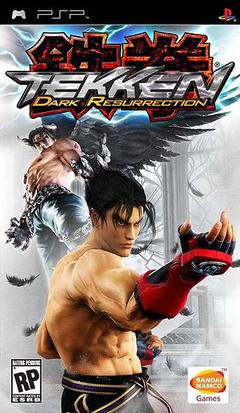
Tekken 5: Dark Resurrection is a fighting game and a standalone update to the PlayStation 2 game Tekken 5. The arcade version was released in Japan in December 2005 and later worldwide in February of 2006, while the PSP version was released as a home version of the Tekken series later that year in July 2006. The game was also released as a downloadable game on the PlayStation 3 via the PlayStation Network online service in Japan in 2006 and the rest of the world in 2007. A sequel, Tekken 6 was released in 2007.

Dead or Alive 4 is a 2005 fighting game developed by Team Ninja and published by Tecmo for the Xbox 360. It is the fourth main entry in the Dead or Alive fighting series.

Mario Tennis: Power Tour, known as Mario Power Tennis in Europe, is a 2005 sports game developed by Camelot Software Planning and published by Nintendo for the Game Boy Advance. It is the sequel to the Game Boy Color version of Mario Tennis. While it is the handheld companion to Mario Power Tennis, released on GameCube, with the European release sharing its title, Power Tour lacks connectivity with Power Tennis, unlike how its predecessor features connectivity with its console counterpart on Nintendo 64. Power Tour was re-released on the Wii U's Virtual Console in 2014.

Mega Man Powered Up is a side-scrolling platform video game developed and published by Capcom. It was released for the PlayStation Portable (PSP) handheld game console in March 2006. It is a remake of the original Mega Man game released in 1987 for the Nintendo Entertainment System (NES). Players control the eponymous star Mega Man who must stop Dr. Wily from conquering the world using eight robots called Robot Masters. Unlike the original game, players can control these eight Robot Masters under the right circumstances. Other new features include a level creator mode and a challenge mode.

Street Smart is a 1989 beat 'em up arcade video game developed and published by SNK. The game's objective is to win money, girls [sic], and glory on the streets all over the West. Taking place in a once-in-a-lifetime "Champion Tag Match in USA" tournament where players take the roles of two young hand-to-hand combat experts who have to brawl with the toughest street fighters of the entire nation.

WWE SmackDown vs. Raw 2008 is a professional wrestling video game published by THQ in November 2007, and developed by Yuke's for the PlayStation 2, PlayStation 3, Xbox 360, Wii, and PlayStation Portable video game consoles, with Amaze Entertainment overseeing development for the Nintendo DS version.

Dissidia Final Fantasy is a fighting game with action RPG elements developed and published by Square Enix for the PlayStation Portable as part of the campaign for the Final Fantasy series' 20th anniversary. It was released in Japan on December 18, 2008, in North America on August 25, 2009, and in Australia and Europe in September. It was then re-released in Japan, based on the North American version, as Dissidia Final Fantasy: Universal Tuning, on November 1, 2009.

Aliens vs. Predator: Requiem is a 2007 action game exclusive to the PlayStation Portable, developed by Rebellion Developments and published by Vivendi Games. It was released in November 2007 in North America and Europe, and December 2007 in Australia. It is part of the Alien vs. Predator franchise, an amalgamation of the Alien and Predator franchises. Aliens vs. Predator: Requiem is a tie-in to the film of the same title, which was released shortly after the game.

Resistance: Retribution is a third-person shooter video game developed by Bend Studio for PlayStation Portable. It was announced on July 15, 2008, at Sony's E3 press conference and released on March 17, 2009, in North America, March 20, 2009, in Europe and March 26, 2009, in Australia. Bend Studio said in an interview with GameSpot that they worked with Insomniac Games in the initial process of the game design. It is set between Resistance: Fall of Man and Resistance 2. Sony has discontinued online support for the game.

Darkstalkers Chronicle: The Chaos Tower, known in Japan as Vampire Chronicle: The Chaos Tower in Japan, is a Capcom fighting game for the PlayStation Portable. It was released on December 12, 2004, alongside the PSP at launch in Japan, in North America on March 24, 2005 for the North American PSP launch and in Europe on September 1.
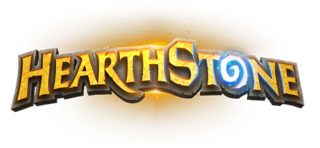
Hearthstone is a free-to-play online digital collectible card game developed and published by Blizzard Entertainment. Originally subtitled Heroes of Warcraft, Hearthstone builds upon the existing lore of the Warcraft series by using the same elements, characters, and relics. It was first released for Microsoft Windows and macOS in March 2014, with ports for iOS and Android released later that year. The game features cross-platform play, allowing players on any supported device to compete with one another, restricted only by geographical region account limits.




















